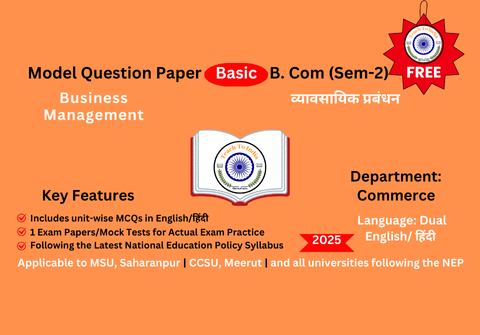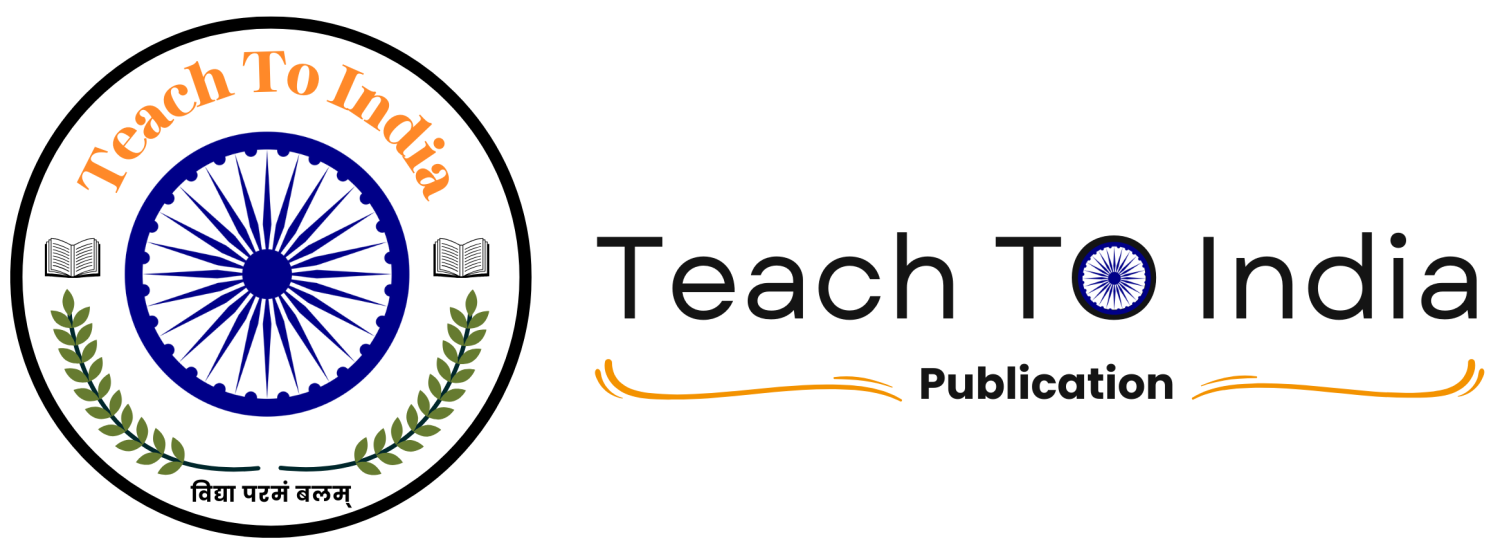Business Management - व्यावसायिक प्रबंधन
- Description
- Curriculum
- Reviews

Model Question Paper
Business Management – व्यावसायिक प्रबंधन
Key Features | मुख्य विशेषताएँ
- Bilingual Model Paper | द्विभाषी मॉडल पेपर
- Enough MCQ for Practice | अभ्यास के लिए पर्याप्त MCQ
- Exam Practice Paper with Mock Tests | मॉक टेस्ट के साथ परीक्षा अभ्यास पत्र
- Latest Syllabus as per NEP | NEP के अनुसार नवीनतम पाठ्यक्रम
- Designed by Experts | विशेषज्ञों द्वारा तैयार किया गया
The given MCQs cover only 10% of the syllabus | दिए गए बहुविकल्पीय प्रश्न केवल 10% पाठ्यक्रम को कवर करते हैं।
To cover 100% of the syllabus with summaries, upgrade to our Advanced Model Paper.| पूरा सिलेबस और सारांश कवर करने के लिए हमारा एडवांस मॉडल पेपर जॉइन करें। Join Advanced Model Paper
|
Program Class: Certificate/ B.COM. |
Year: First |
Semester: Second |
||
|
Subject: Commerce |
||||
|
Course Title: Business Management |
||||
|
Course Learning Outcomes: After completing this course a student will have: · Ability to understand the concept of Business Management along with the basic laws and norms of Business Management. · Ability to understand the terminologies associated with the field of Business Management and control along with their relevance. · Ability to identify the appropriate method and techniques of Business Management for solving different problems. · Ability to apply basic Business Management principles to solve business and industry related problems. Ability to understand the concept of Planning, Organising, Direction, Motivation and Control etc. |
||||
|
Credits: 6 |
Core Compulsory / Elective: Compulsory |
|||
|
Max. Marks: –25+75 |
Min. Passing Marks: 33 |
|||
|
Unit |
Topics |
|||
|
I |
Discuss the Management Practices in Indian “Vedas”. Introduction: Concept, Characteristics, Nature, Process and Significance of Management; Managerial Roles (Mintzberg); An overview of functional areas of Management; Development of Management Thought; Classical and Neo Classical System; Contingency Approach, System Approach.
|
|||
|
II |
Planning: Concept, Characteristics, Process, Importance and Types, Criteria of effective planning. Decision Making: Concept, Process, Types and Importance. Management by Objectives. Organisation: Concept, Nature, Process and Significance. Authority and Responsibility Relationships. Centralization and Decentralization. Departmentation. Organizational Structure- Forms.
|
|||
|
III |
Direction: Concept and Techniques, Coordination as an Essence of Management, Communication- Nature, Process, Importance, Types, Networks and Barriers. Effective Communication. Management of Change: Concept, Nature , Types of Changes and Process of Planned Change, Resistance to Change and methods of reducing resistance to change.
|
|||
|
IV |
Controlling: Meaning, Importance and Process, Effective Control System. Techniquesof Control. Motivation- Concept, Types, Importance, Theories Maslow, Herzberg, McGregor, Ouchi, Financial and Non-Financial Incentives. Leadership: Meaning, Concept, Functions and Leadership styles, Likert’s Four System of Leadership.
|
|||







